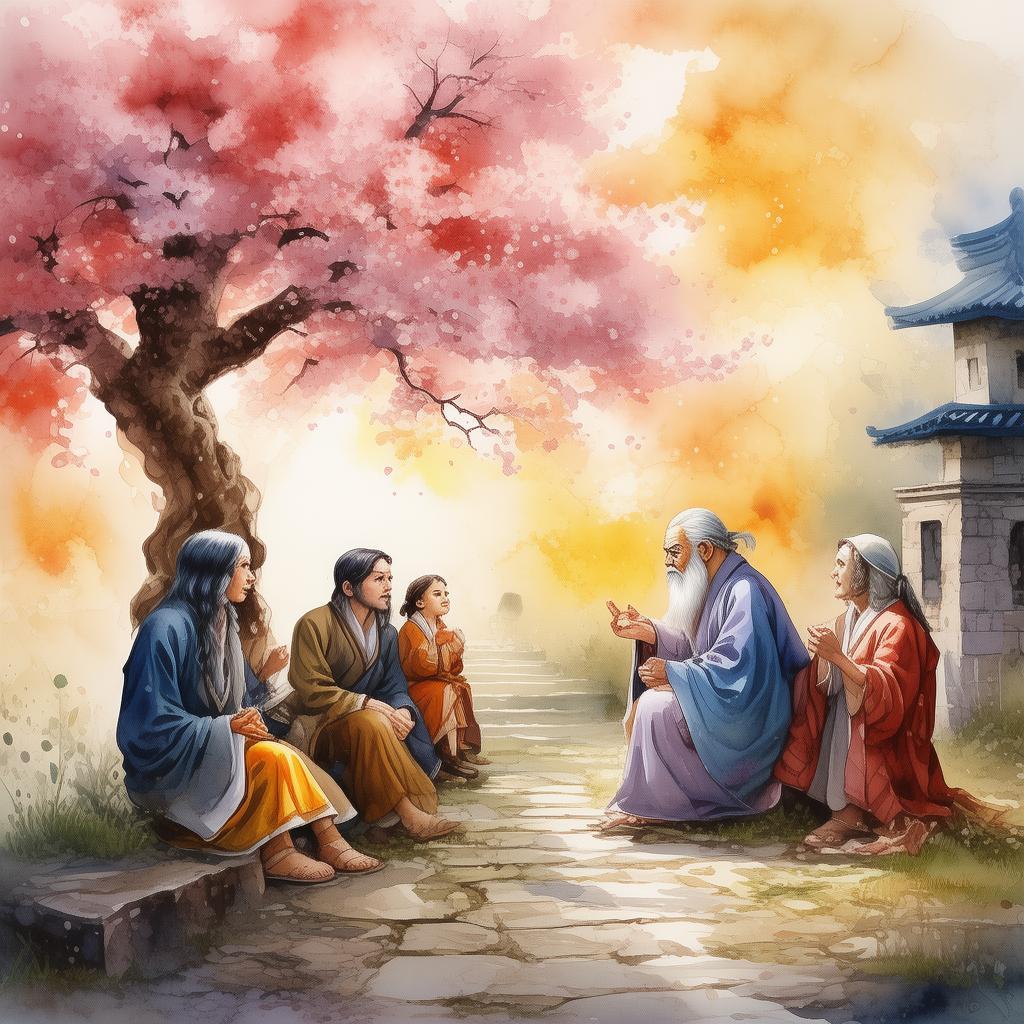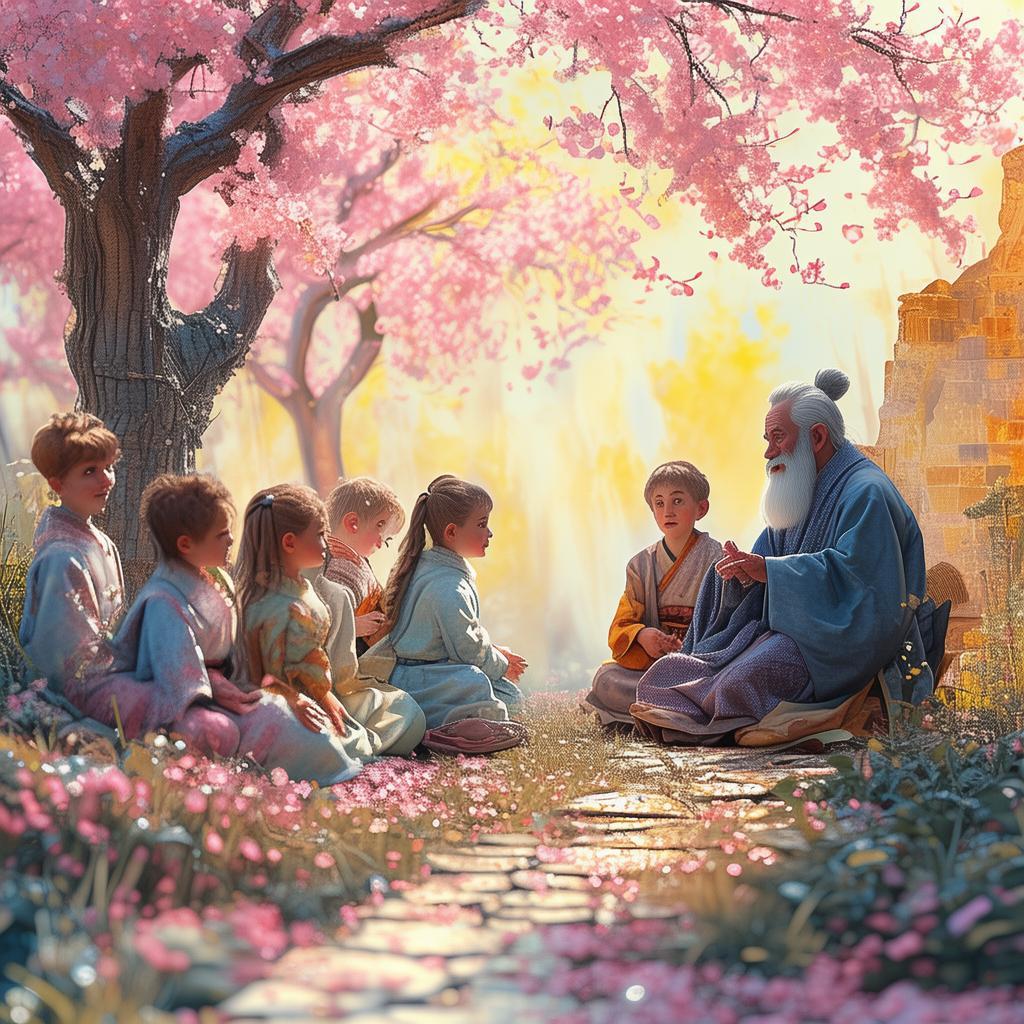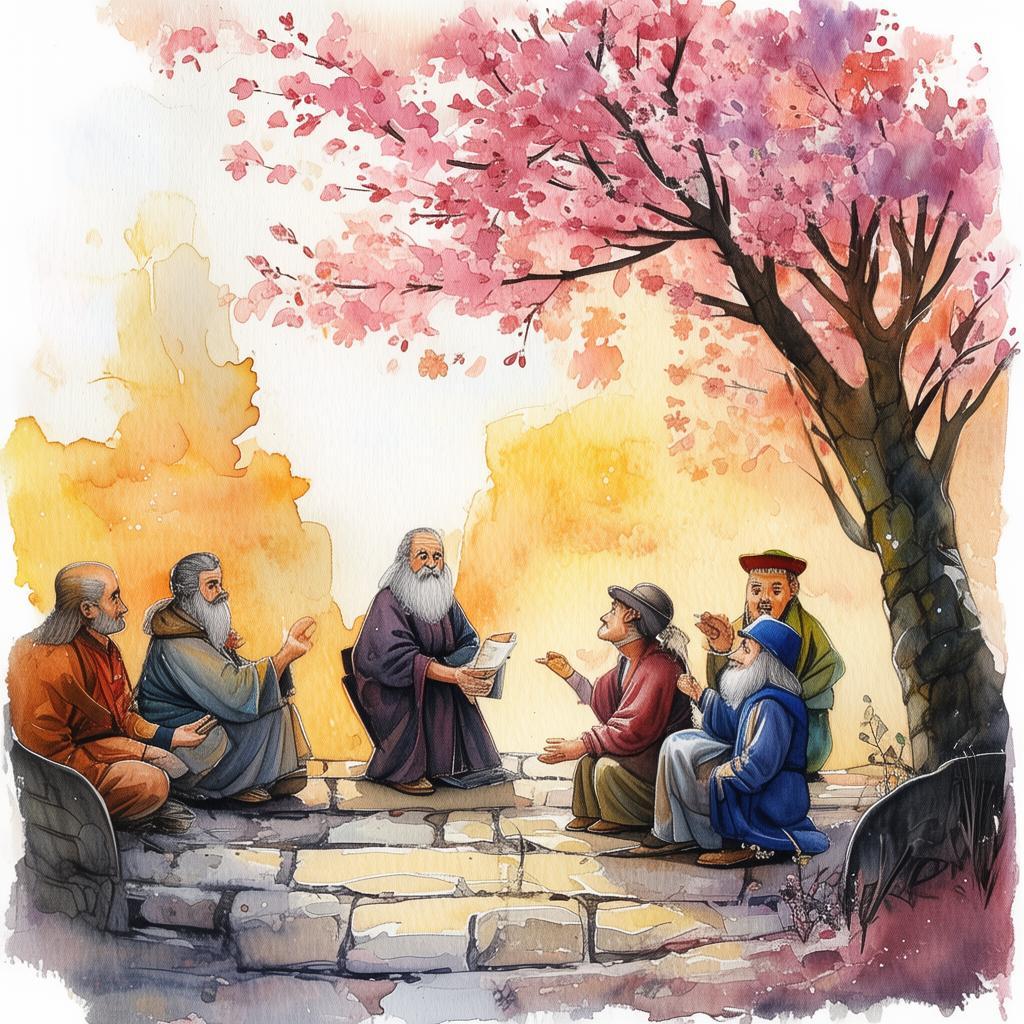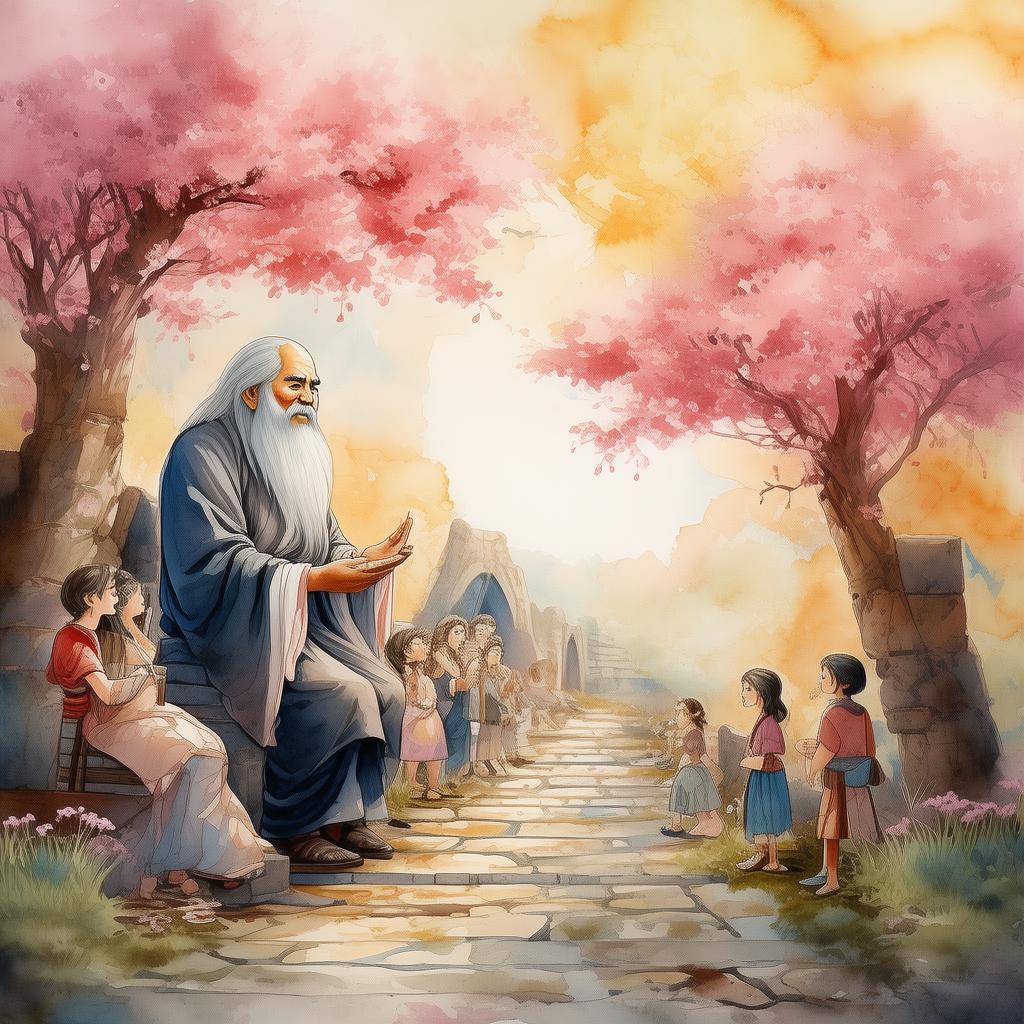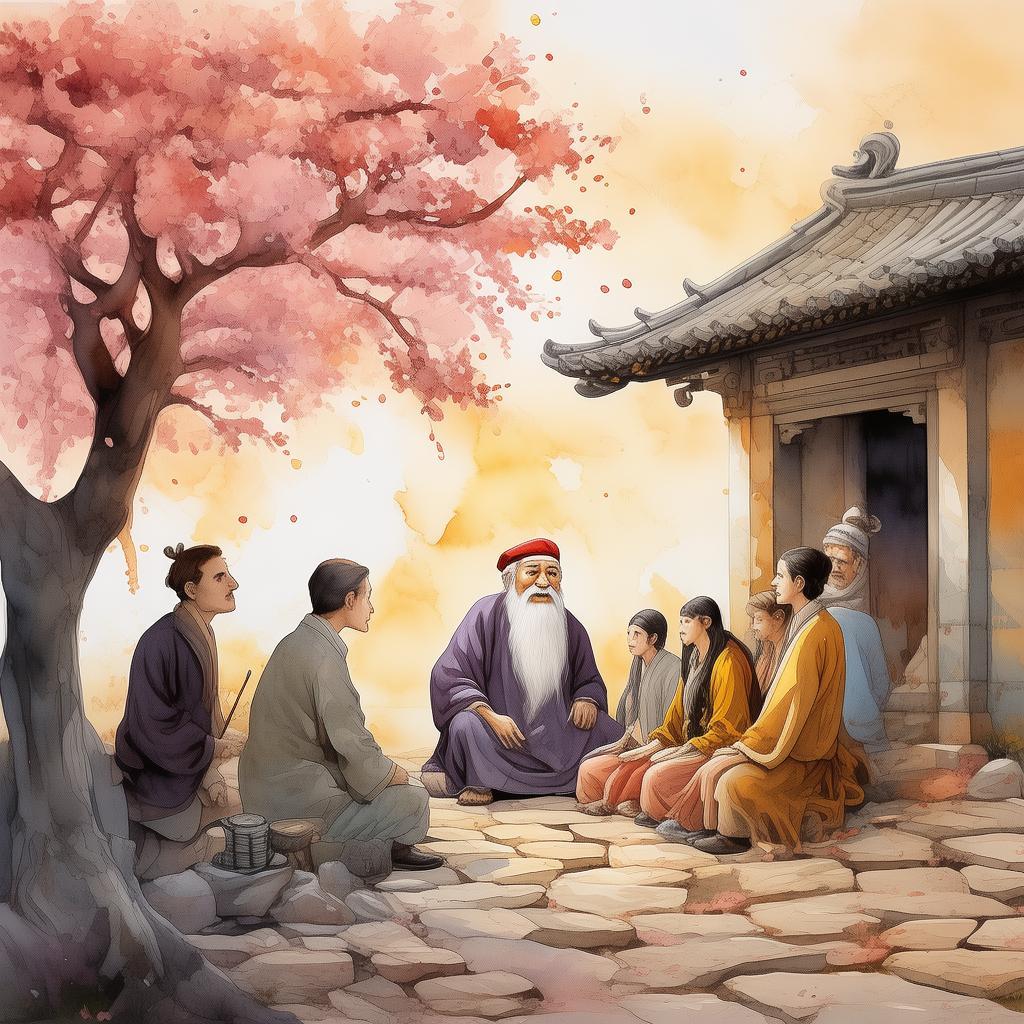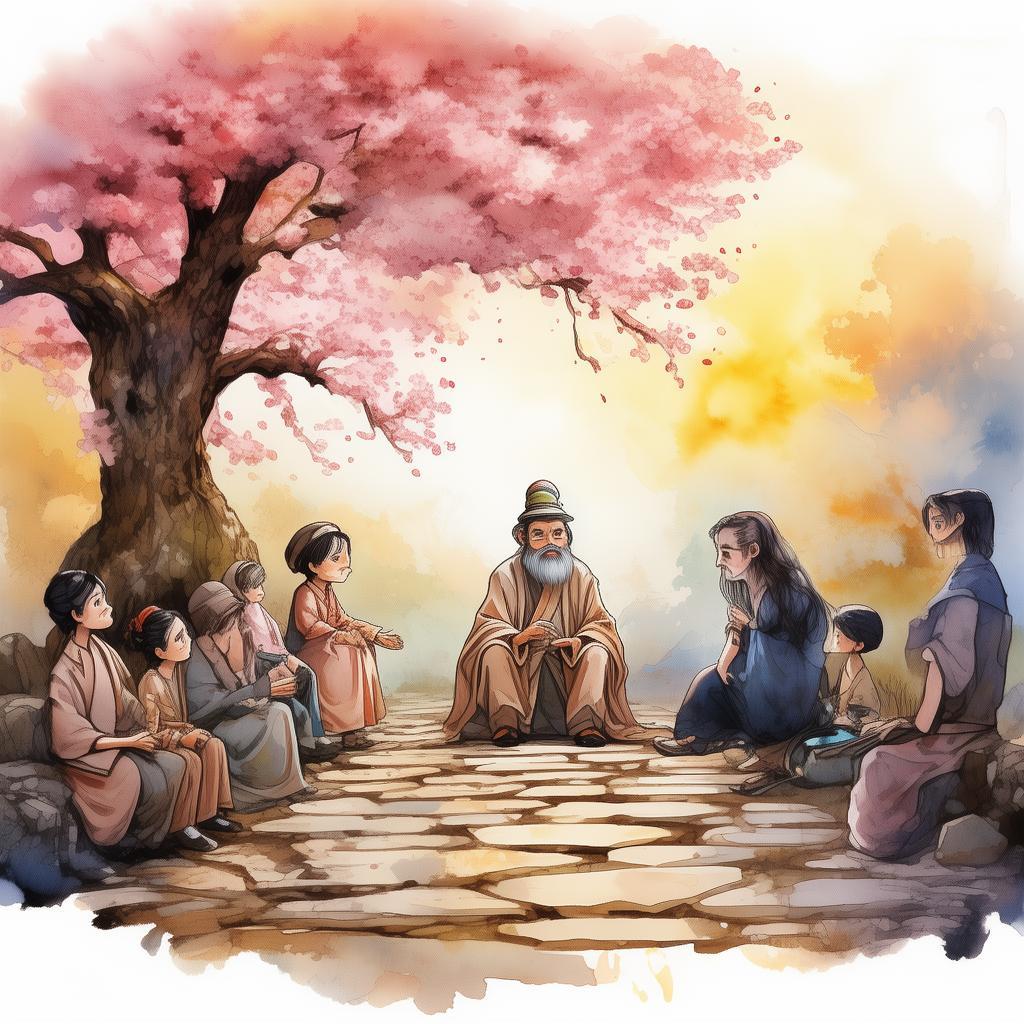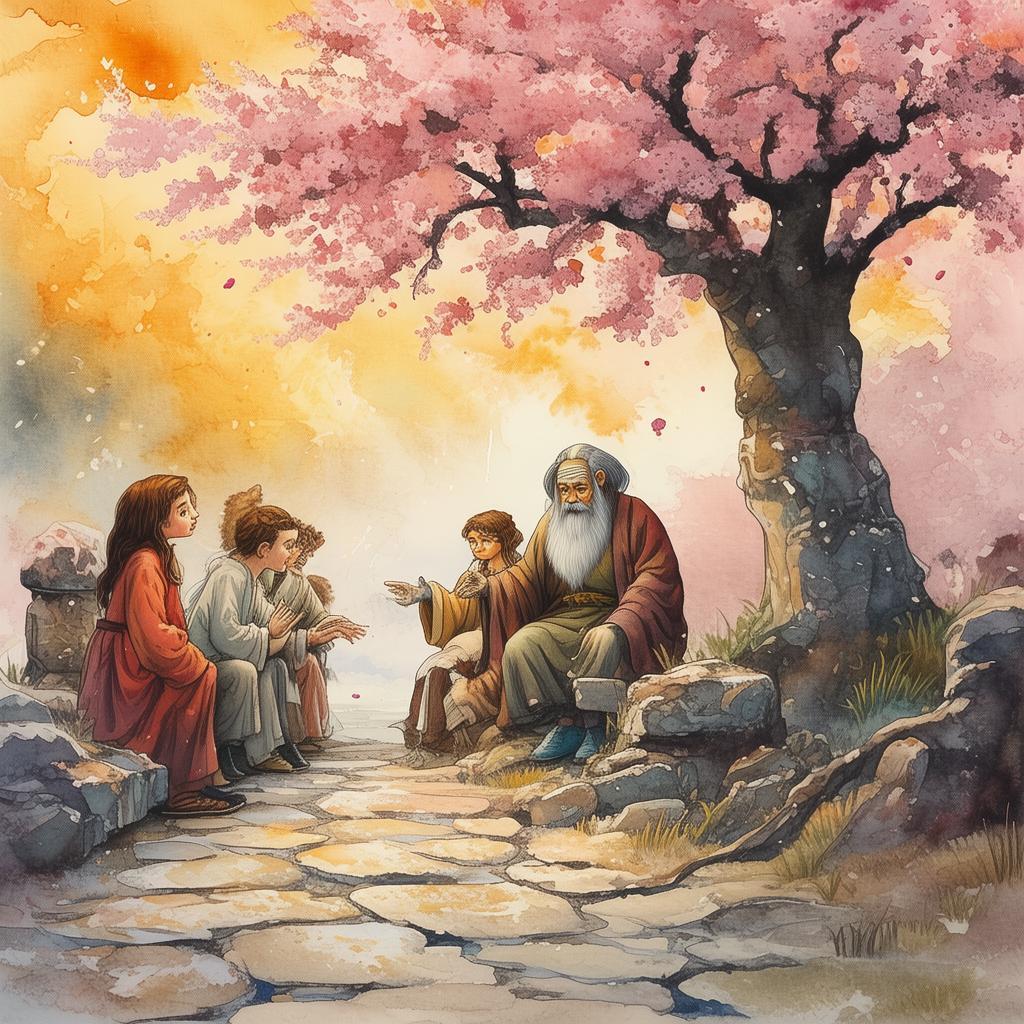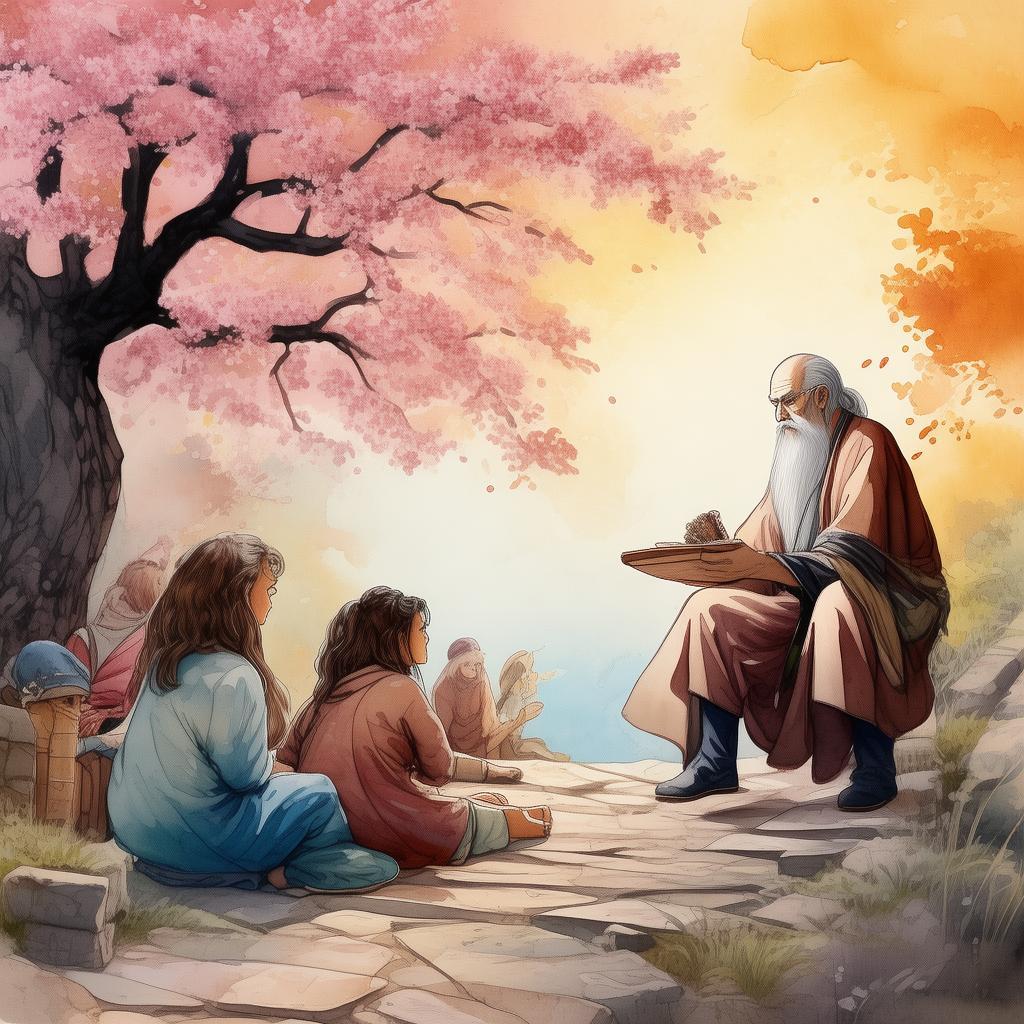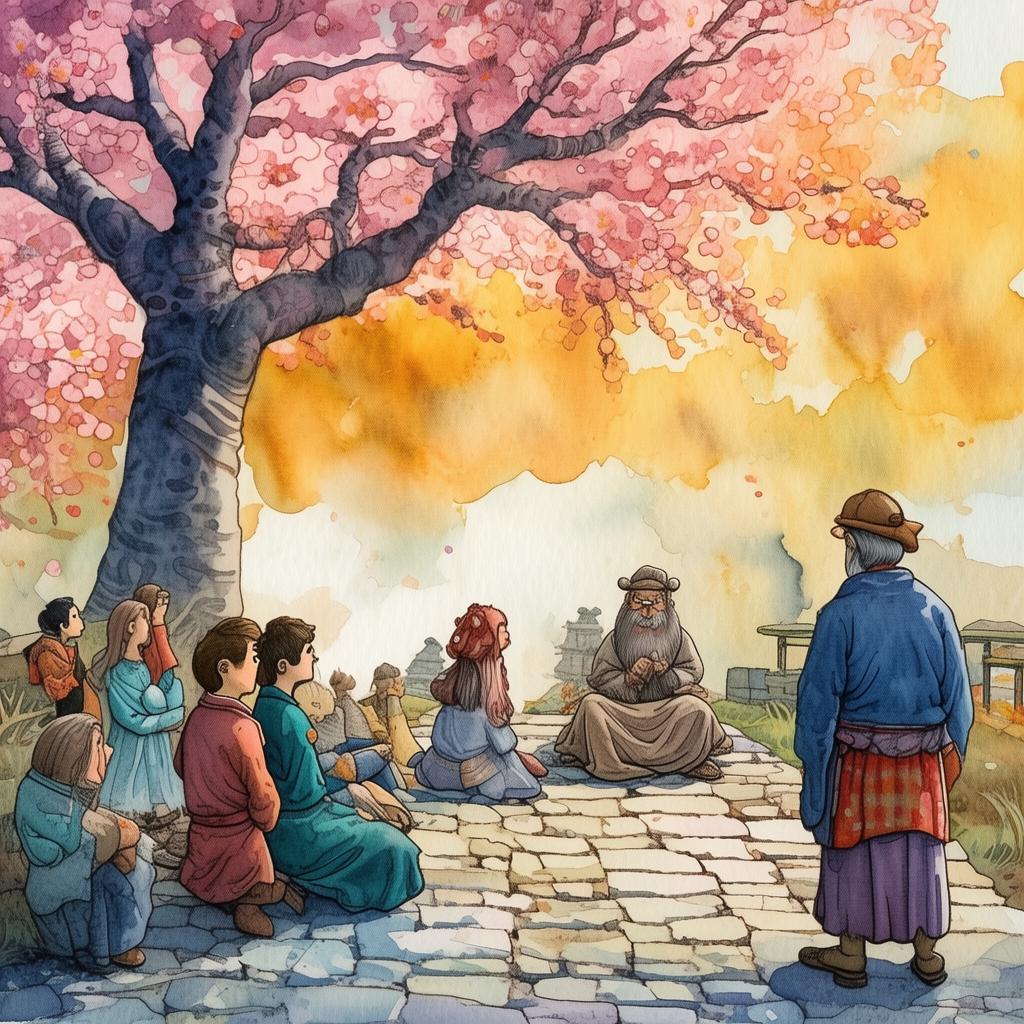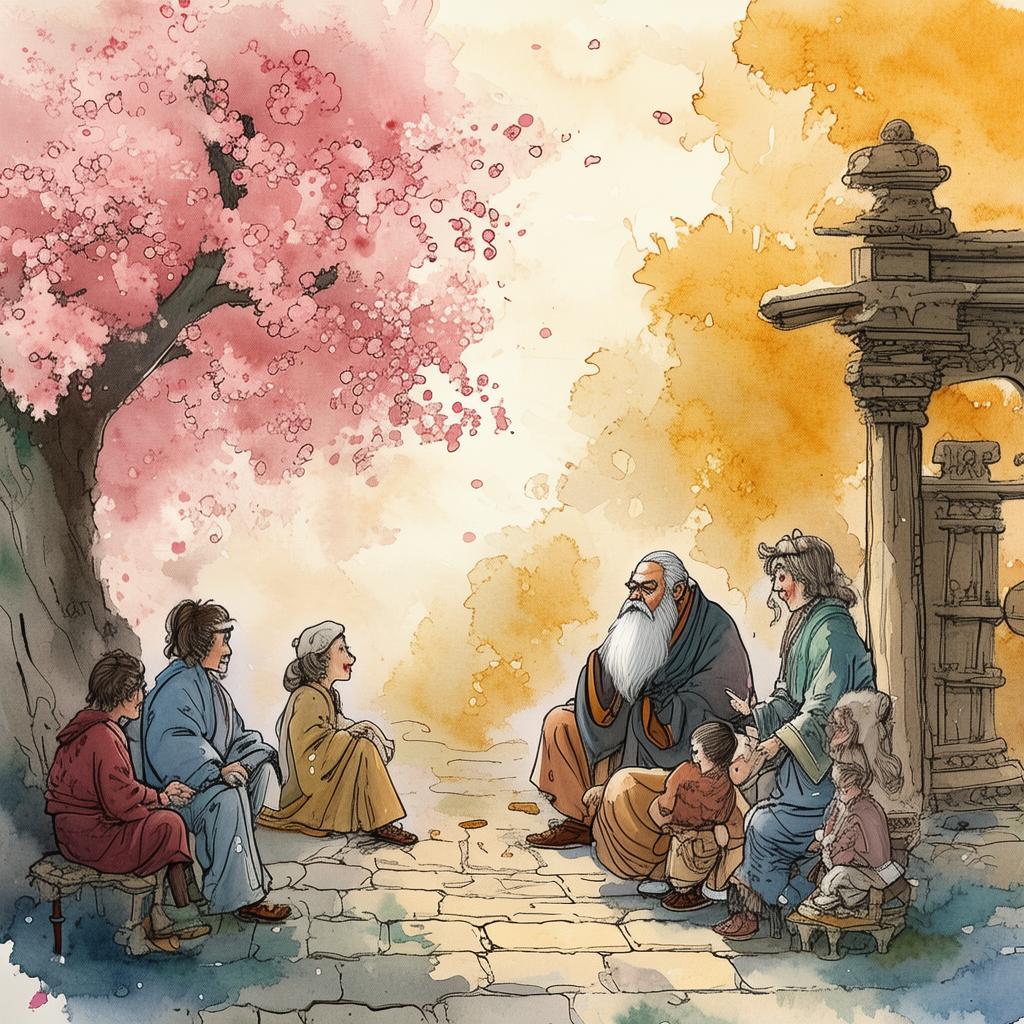The Tea of Fate: The Three-Seasons Brew
In the heart of ancient China, nestled between rolling hills and a winding river, there lay a quaint village named Jingming. The villagers were known for their passion for tea, and among them was a young man named Ming. Ming had a gift for discerning the unique flavors of the tea leaves, a skill passed down through generations of his family. He was on the cusp of becoming the village's most esteemed tea master.
One crisp autumn morning, Ming was tending to his tea bushes when he noticed an old, tattered scroll tucked into the branches of a willow tree. Curiosity piqued, he climbed down and retrieved it. The scroll was filled with cryptic symbols and a recipe for a brew known as the Three-Seasons Brew, a tea that was said to be imbued with the essence of spring, summer, autumn, and winter, and to possess the power to change one's destiny.
The recipe called for five rare flowers: the peony of spring, the lotus of summer, the chrysanthemum of autumn, the plum blossom of winter, and the rose. Ming knew that obtaining these flowers would be no easy feat, as they bloomed at different times of the year and in different places. Yet, driven by the scroll's promise, he set out on a journey to gather them.
Spring brought him to the lush mountains where he found the peony, its petals as soft as the morning dew. Summer saw him crossing rivers and traversing deserts, until he discovered the lotus in the heart of a tranquil lake. The autumn harvest brought him to the fields where the chrysanthemum stood, its golden blooms shimmering in the sunlight. Winter found him in the snow-covered forests, where he found the resilient plum blossom, blooming even amidst the harsh cold.
The final flower, the rose, was the most elusive. Ming spent months searching through the mountains and valleys, until he found it blooming on a cliff overlooking the sea. The journey was arduous, and at times, it seemed as if fate itself was against him. Yet, Ming's determination never wavered.
With all five flowers in hand, Ming returned to his village. He followed the recipe precisely, boiling the water, blending the flowers, and steeping the tea. As the tea leaves unfurled in the hot water, a magical aroma filled the air. The tea was unlike anything he had ever tasted, and he knew it was the tea of fate.
That evening, Ming invited the village elders to share the tea with him. As they sipped from their cups, they felt a sense of warmth and tranquility wash over them. The elders began to speak of their own dreams and desires, and Ming realized that the Three-Seasons Brew had the power to reveal the deepest yearnings of the heart.
The next day, Ming held a grand tea ceremony, inviting all the villagers to partake in the brew. As the tea was served, a sense of unity and harmony spread throughout the village. Ming noticed that the tension that had long plagued the community seemed to dissolve, replaced by a newfound sense of purpose and hope.
Word of the Three-Seasons Brew spread quickly, and soon travelers from far and wide were making their way to Jingming to experience the magical tea. Ming's reputation grew, and he became the most sought-after tea master in the land.
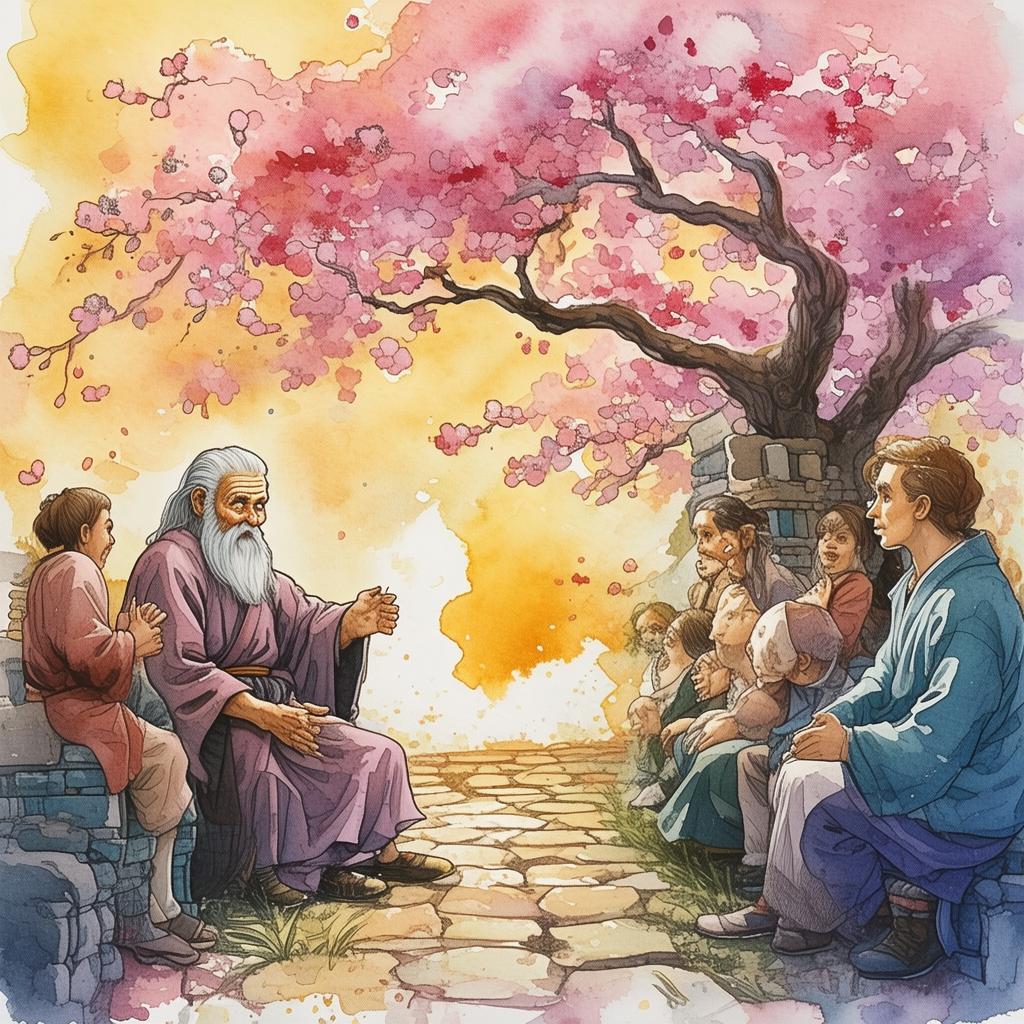
However, as Ming's destiny unfolded, he began to question the true power of the tea. He realized that while the brew had the ability to reveal desires, it was not the brew that changed destinies; it was the collective will of the people. The villagers' dreams and aspirations, their unity and resilience, were what truly shaped their fate.
One evening, as Ming sat under the willow tree where he had found the scroll, he understood the true essence of the Three-Seasons Brew. It was not a potion of fate, but a symbol of the human spirit's ability to overcome adversity and create a future through unity and perseverance.
Ming decided to share this revelation with the villagers. From that day forward, the Three-Seasons Brew became a symbol of hope and resilience, a reminder that destiny was not written in stone but could be shaped by the choices and actions of those who believed in themselves and their community.
The tale of the Three-Seasons Brew and the young tea master who uncovered its true power became a legend in Jingming, a story that would be passed down through generations, inspiring hope and unity in the hearts of all who heard it.
✨ Original Statement ✨
All articles published on this website (including but not limited to text, images, videos, and other content) are original or authorized for reposting and are protected by relevant laws. Without the explicit written permission of this website, no individual or organization may copy, modify, repost, or use the content for commercial purposes.
If you need to quote or cooperate, please contact this site for authorization. We reserve the right to pursue legal responsibility for any unauthorized use.
Hereby declared.
